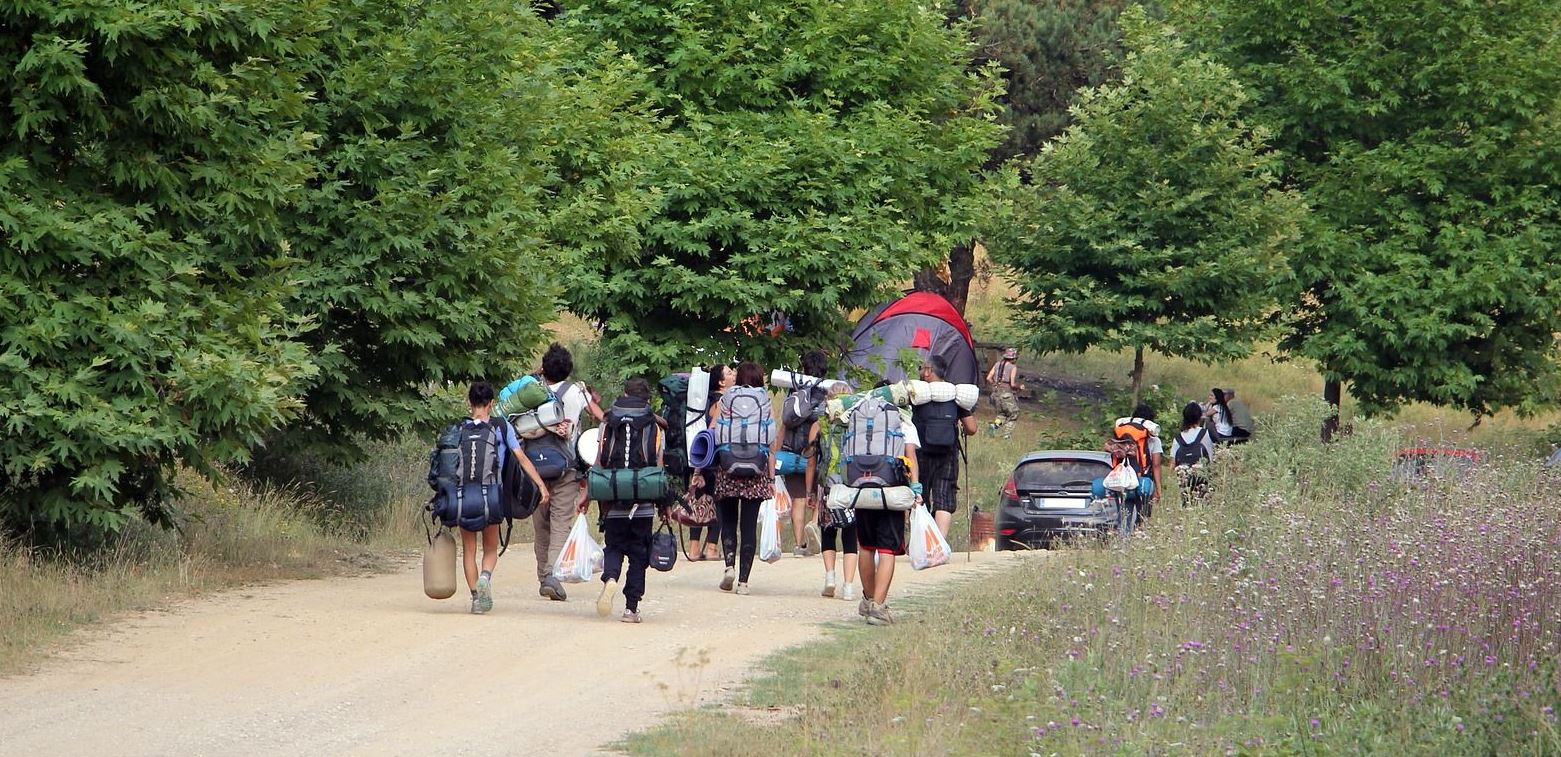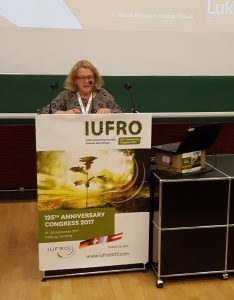IUFRO All-Division 6 Meeting at the 125th Anniversary Congress
An Interview with Division 6 Coordinator Tuija Sievänen of the Natural Resources Institute Finland
—–
Research Organizations (IUFRO) is a non-profit, non-governmental international network of forest scientists, which promotes global cooperation in forest-related research and enhances the understanding of the ecological, economic and social aspects of forests and trees. IUFRO’s 125th Anniversary Congress was held in Freiburg, Germany, 18-22 September 2017.
IUFRO is “the” global network for forest science cooperation. It unites more than 15,000 scientists in almost 700 Member Organizations in over 120 countries, and is a member of the International Council for Science (ICSU). Scientists cooperate in IUFRO on a voluntary basis.
IUFRO’s field of scientific activity is spread over nine Divisions covering key forest research fields: Silviculture; Physiology and Genetics; Forest Operations, Engineering and Management; Forest Assessment, Modelling and Management; Forest Products; Social Aspects of Forests and Forestry; Forest Health; and Forest Policy and Economics.
Each of those Divisions is broken into units that focus on specific aspects that fall under the divisional umbrella.
Five of the nine Divisions held all-Division meetings in conjunction with the IUFRO 125th Anniversary Congress. At the all-Division meetings, researchers were brought up to date, through a number of presentations, on issues and findings pertinent to them.

Division 6 – Social Aspects of Forests and Forestry – includes: forest and human health; forest education; forest ethics; gender and forestry; landscape planning and management; nature-based tourism; nature conservation and protected areas; recreation; rural development; and urban forestry.
The units within Division 6 look into: Social Aspects of Forests and Forestry; Forest Recreation; Landscape Planning and Management; Nature-based Tourism; Nature Conservation and Protected Areas; Forest Ethics; Forest, Trees and Human Health and Wellbeing; Urban Forestry; Gender and Forestry; Forest Education; and Rural Development.
———
Tuija Sievänen of the Natural Resources Institute Finland and the Coordinator of IUFRO Division 6 elaborated on her Division’s work:
“The range of topics covered by Division 6 is broad and goes into all kinds of issues related to the cultural and social aspects of forestry and forests,” said Ms. Sievänen. “Recreation and tourism, landscape as a cultural asset, urban forests as a source of well-being for people, human health aspects, gender aspects, ethics, education, rural community development, forestry livelihoods from a social perspective, etc.”

Tuija Sievänen, Coordinator of IUFRO Division 6 – Social Aspects of Forests and Forestry.
She said the interest shown in the topics presented by her Division at the Congress and the quality of the speakers left her feeling very satisfied.
“I’m happy that Division 6 had so many good sessions at the Congress and that there were a lot of social aspects integrated into other sessions outside our Division. It’s good progress to see social sciences having such a large role in forest sciences.
“Research on the social aspects of forestry and forests can offer valuable input for the understanding of the forest–human relationship. IUFRO Division 6 provides a link for scientists who work on these issues,” she said.
“At the Congress we had more sessions and presentations than I actually expected, so I think our work was well reflected in the Congress program by some dedicated researchers,” she added.
One of the interesting, and unexpected, sessions focused on combining art with research. “It was a presentation from Japan,” she said, and it dealt with getting people to express their feelings about their relationship with nature. “Many people cannot express this in words, but information can be obtained by having them create drawings.”
Ms. Sievänen noted that “recreation and landscape topics have been studied for several decades and have had a lot of research done, but now the most active research area – though not the largest – may be related to forests and human health, and to rural development, particularly in the developing countries. Urban forestry is also a field that is very active in IUFRO.
“And, there’s a new Task Force proposed on ethics,” she said. “We often work with people in forest-dependent and local communities to help us with our research but they don’t get anything back and we need to start giving back.”
Ms. Sievänen added: “At this moment, only few in IUFRO are active in this area, but there is a growing interest in issues of ethics as they relate to forests and forestry. I think it is an important topic that should be included in forestry discussions.”
Coming out of the Congress, she noted: “There are new approaches, tools and methodologies emerging to help us do better research and planning – for example, using recreation indicators in GIS systems to make it easier to integrate social values in forest planning and recreation management.
“People are dependent on forests, but today forests need people who understand the relationship between humans and nature. We must understand both people and forests in order to have sustainable forestry,” she said.
She feels that “social issues are of growing interest in the forestry sector, and that the interest will continue to grow and a broad spectrum of research will be done on those issues in future.”
Visit the IUFRO Anniversary Congress website for an overview of the program and for photos. Videos of the live-streamed sessions will be available on: http://iufro2017.com/

Leave a Reply